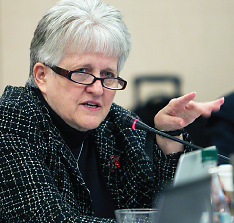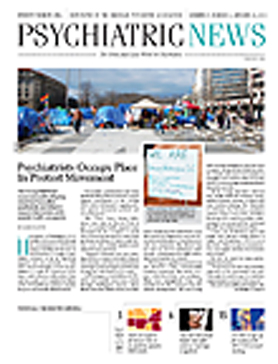Bowing deeply to the realities of the digital age, the APA Board of Trustees voted at its December 2011 meeting to remove most of the restrictions that have for many years limited the activities of candidates for APA office, acknowledging that Facebook and e-mail have dramatically changed the way members communicate.
The Board ended restrictions on e-mails and other forms of electronic messaging, on the number of letters and faxes that candidates can send out, and on the use of social-networking sites, blogs, and homepages. In addition, there will no longer be limits on electronic presentations and the number of professional presentations candidates can make during the campaign season. The amended rules will take effect with campaigns for the 2013 election, since the current election cycle is already underway.
In another vote, the Board decided to undo its decision of two years ago to combine the Council on Psychosomatic Medicine and the Council on Geriatric Psychiatry into a Council on Adult Psychiatry and instead return to having each of those function as separate components. President-elect Dilip Jeste, M.D., noted that that there was “no clinical or scientific rationale” for the combination, and the members with expertise in one of the two specialty areas rarely interacted.
The split will give each of the subspecialty areas that are recognized by the American Board of Psychiatry and Neurology a separate council. The third component of the combined Council on Adult Psychiatry, addiction medicine, had earlier been returned to independent status. Forensic psychiatry continues to be represented by the Council on Psychiatry and Law and child and adolescent psychiatry by the Council on Children, Adolescents, and Their Families.
The Board also approved a procedural recommendation that members of all councils and committees, once appointed, are to make their contact information available to the APA membership.
Turning to membership issues, the Board agreed with a proposal from the Membership Committee to change the name of the current category of International Fellow to International Distinguished Fellow and grandfather existing International Fellows into the new category. This change is part of the Board’s commitment to increasing APA’s international membership. Criteria that will define the new category of International Fellow are in the process of being developed.
The Board also expanded the charge of the Work Group on International Activities. Among the tasks that will now be the purview of the work group, which is chaired by Jeste, are developing a brochure in English and Spanish describing the benefits of APA membership for international members, creating an international APA list serve and bulletin board, and preparing a plan for reduced annual meeting registration fees for international members and for international psychiatrists who join APA at the annual meeting.
Board members also addressed proposals from the Ad Hoc Work Group on Membership, headed by Assembly Speaker Ann Sullivan, M.D. Among the proposals that were approved were to have APA undertake a member survey to ascertain what types of communications members want to receive from APA and to enhance regular communications between APA and specific member groups such as those defined by stage of life in the profession, clinical interests, advocacy interests, and identity groups. In addition, the Board agreed that APA officers and leaders should proactively provide comments on key issues and regularly make themselves available to members through forums, live Web chats, and social-networking sites. Board members will also begin contacting academic medical centers in their local areas to give annual presentations to faculty and residents and fellows about what APA is doing to enhance the profession and patient care in a variety of areas.


